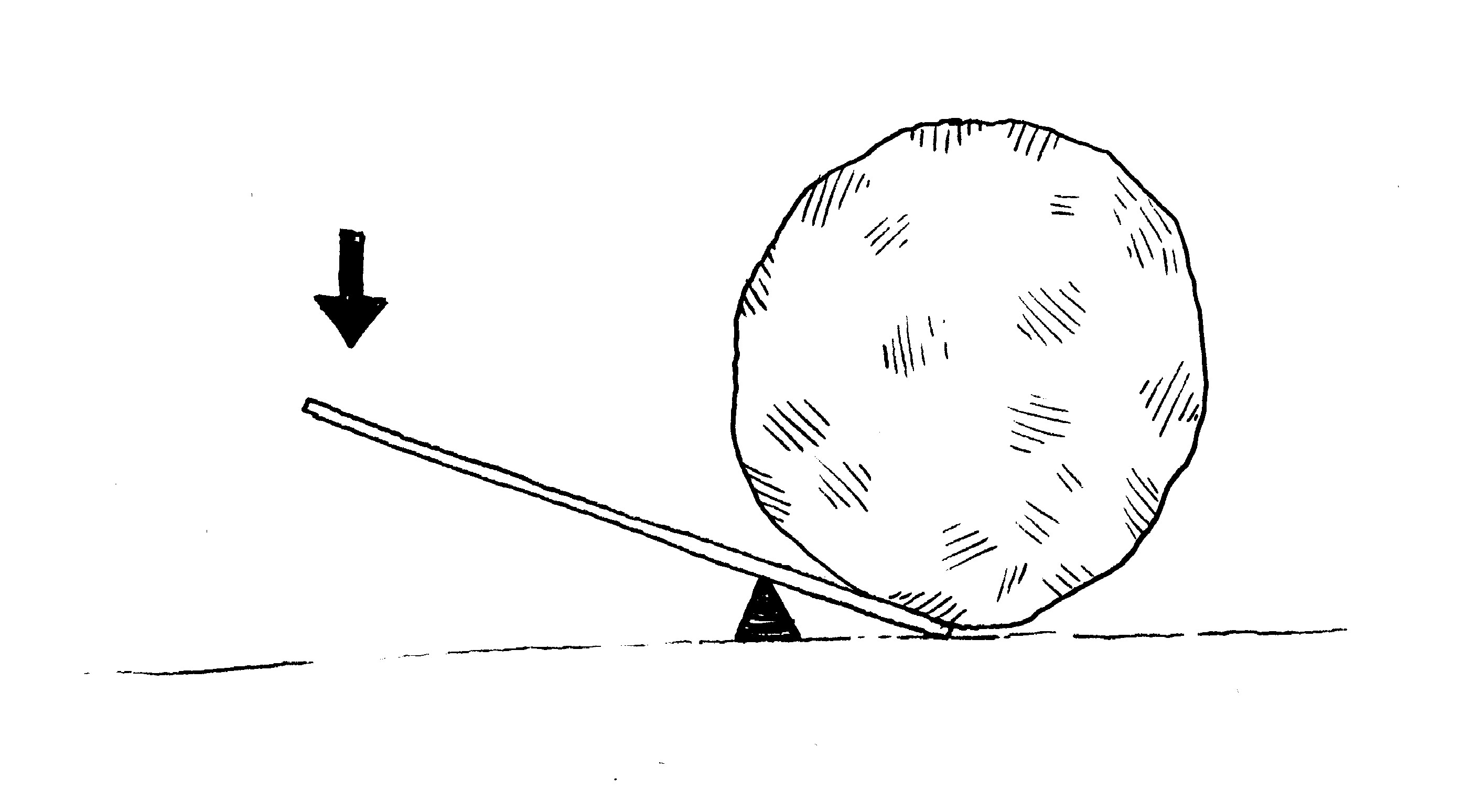
You can’t always get what you want, but if you try sometimes, you just might find, you get what you can move.
Over the years I’ve written a lot about how we work at Basecamp. A lot of the things we do would be considered unusual. 4-day work weeks in the summer, paying for people’s hobbies outside of work, allowing employees to work from anywhere, even paying for fresh fruits and veggies at everyone’s home.
So a common follow-up question I get is: “How would you recommend I encourage my boss to do some of the things you guys do?” These questions often come from people lower in an organization that wished their company would do some of the stuff that we do for our employees.
My follow-up to their follow-up often throws them off a bit. I ask “got a lever?” You might see how that’s an odd question to ask. But at that moment it’s the most important question there is.
If you want to move something, you need leverage — especially if you don’t have the implicit power to make the change. And most of the people asking me the question don’t have the power to force anything through.
So they have to build a lever to maximize their force. You can move surprisingly heavy objects (or stubborn companies) with even a small lever. The best way to begin building a lever is through small victories. Small asks which create the opportunity to rack up wins. Wins lead to more leverage.
Results often speak for themselves. You may think this or think that, and your boss may think differently, but if you can demonstrate that you can produce results, or that progress doesn’t regress if you do it a different way, then you begin to build your lever.
Take working from home as an example. At Basecamp everyone can work remotely. It’s built into our culture. In fact, the majority of the company does work remotely. Out of the 50 people at Basecamp, around 35 people work in cities outside of Chicago (Chicago is where our headquarters are based). Most are in different states, some are in different countries.
But for a company not used to remote working, experimenting with remote working can be met with significant resistance. So if you want to convince your boss that it’s worth the risk, you have to start small. Remember, you don’t have the leverage yet — you haven’t shown any victories.
So what I often recommend people do is ask their boss for a single afternoon a month where they can work from home. Take the first Thursday afternoon of the month. You leave at lunch and work the rest of the day at home. Prove that the sky isn’t falling. Prove that you can get your work done without physical supervision or proximity to your co-workers. Better yet, show you get even more done at home than you do at the office.
Prove it. And once you have, you’ve built a lever. It’s still small, but it’s better than no lever at all. And now you can use that tiny lever to move your boss a bit further than you could before. Now you can aim for a full day a month. Prove that works, then you’ve got another segment to add to your lever. Leverage is forming.
Keep proving it works and you’ll get a day a week, maybe two. Maybe they every other day. Or maybe you can introduce the idea to a few other people you work with and they can ask the boss, citing your success as an example. Share the lever.
Ultimately, the more victories you have along the way, the longer the lever gets. And the more places you can begin to apply it. Now you aren’t just moving the “can I work from home?” boulder, but you can move other things too. How else would you like to see your workplace change? Your back catalog of victories will server as leverage and provide the push you need to make some other things happen.
So, remember, it’s not about how to enact major change. Minor change is a better start. Minor builds on minor, nothing turns into something, and eventually you’ll get the leverage you need to get that major change you seek. It’s not quick, and it may not be easy, but at least it’s a measured approach that’s a more reliable path to progress than trying to brute force your way through to what you want.
Speaking of levers… Basecamp 3 is a lever — it multiplies your abilities to work together without adding more people or carving out more time. It’s allowed our small team to have a force 5x our size. Let it be your lever too.

